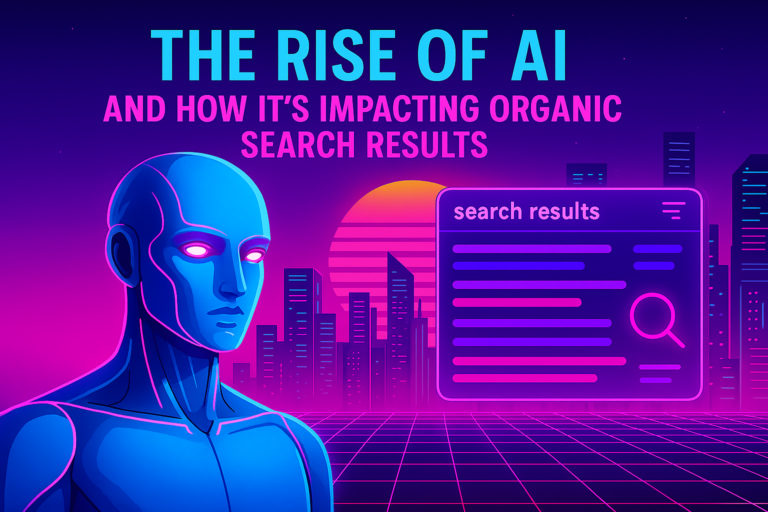Introduction: How AI Can Transform Custom Business Operations
At 5K, we specialize in helping businesses streamline their operations by leveraging the power of AI and automation. Recently, we’ve been exploring how AI can solve the unique challenges faced by industries with complex, custom workflows. From project management to customer communication, AI is increasingly becoming the backbone of modern business operations.
In this blog post, we’ll explore the benefits of AI-driven automation, highlighting its impact on businesses in complex industries. Additionally, we’ll dive into a specific example—a resto mod shop—to illustrate how AI can be applied to improve key aspects of a custom operation.
1. The Challenge: Complex Workflows in Custom Industries
Custom industries—whether it’s vehicle restoration, bespoke manufacturing, or high-end service industries—face challenges that differ from those in standard operations. These challenges often arise from the intricacies of custom workflows, which result in inefficiencies and complications that can hinder business growth. Some of the most common challenges include:
- Custom workflows: Each project or order requires unique steps and attention, which can lead to inefficiencies.
- Inventory management: With specialized materials and parts, businesses often struggle to track inventory and reorder items on time.
- Customer communication: Keeping clients informed about the progress of their custom orders can be time-consuming and prone to miscommunication.
For example, in a resto mod shop, which specializes in restoring and modernizing classic cars, every restoration project is unique. The process involves complex sourcing, planning, and communication, making it difficult to maintain operational efficiency. However, these challenges are not unique to car restorations—they apply to any business that deals with highly customized services, from custom cabinetry to tailored marketing solutions.
2. The Solution: How AI Can Streamline Complex Operations
AI-driven solutions offer immense potential for businesses dealing with complex workflows. By automating key processes, companies can simplify operations, reduce overhead, and enhance customer service. Let’s break down how AI can improve various aspects of a custom business, helping to address the challenges mentioned above.
AI-Powered Bid Creation and Inventory Management
In industries like resto mod shops, where each project requires a tailored approach, the process of generating bids can be incredibly time-consuming. This is where AI-powered tools come in. With AI, businesses can:
- Automatically transcribe client conversations to capture detailed project requirements.
- Generate a comprehensive bid that includes parts, labor, and additional costs based on AI analysis.
- Check inventory and automatically create purchase orders for parts and materials that need to be sourced from suppliers.
By automating the bid creation process, AI reduces the time spent manually compiling estimates and ensures every proposal is accurate and detailed. This allows businesses to move forward quickly and make more confident decisions.
Real-Time Project Management and Client Communication
Once a project is underway, it’s critical to track progress and maintain clear communication with both the team and the client. AI can help businesses achieve this by:
- Centralizing project data into a single, accessible platform, making it easier for the team to monitor all aspects of the project.
- Automatically updating clients with progress reports, delays, and other important updates, reducing the need for constant phone calls and emails.
- Scheduling tasks and automatically adjusting timelines based on changes, ensuring that the project stays on track.
For a resto mod shop, this could mean tracking the restoration of each vehicle in real-time, from the initial consultation to final delivery, all while providing the customer with regular updates. With automated systems in place, the process becomes smoother and more transparent, helping to build trust with clients.
Vendor and Supply Chain Management Powered by AI
A business dealing with custom projects often has to source materials from multiple suppliers, making it difficult to stay ahead of delays and ensure on-time delivery. This is another area where AI can make a significant impact. AI can help businesses by:
- Tracking vendor performance, flagging suppliers with consistent delays, and enabling businesses to adjust their sourcing strategies.
- Searching external databases to quickly find alternative suppliers or products, reducing lead times for critical parts.
- Automating the ordering process, ensuring that businesses can replenish inventory when needed and avoid bottlenecks.
For example, a resto mod shop could leverage AI to track the availability of specific car parts and suppliers, ensuring that the restoration process moves forward without delays. By proactively managing the supply chain, AI helps reduce the risks associated with sourcing and supplier issues.
3. Real-World Example: AI in Action for Custom Businesses
To better illustrate how AI can benefit a custom business, let’s look at how this solution might be applied in a resto mod shop.
Example: Using AI to Streamline the Classic Car Restoration Process
Imagine a customer contacts the resto mod shop to restore a classic car. Here’s how AI could streamline the process:
- AI Transcription: The initial consultation with the client is transcribed automatically, capturing all the specifics of the project. This transcription forms the basis of the project details.
- Bid Creation: Based on the transcription, the AI system generates a detailed bid, including a list of parts, labor, and costs. It also checks the shop’s inventory to ensure the necessary parts are in stock and identifies any gaps that need to be filled.
- Inventory and Supply Chain: If certain parts are missing or require long delivery times, the AI system automatically places orders with vendors, finding the fastest suppliers to minimize delays.
- Real-Time Project Updates: As the restoration progresses, the AI platform continuously tracks the work being done, updating the client automatically on milestones, changes in the schedule, or issues like paint delays.
This AI-driven process removes the manual work involved in tracking projects, ensuring the resto mod shop stays on top of inventory, scheduling, and customer communication. As a result, operations run more smoothly, and clients remain satisfied with timely, transparent updates.
4. The Impact: Why AI is a Game-Changer for Custom Workflows
Adopting AI-driven automation can have transformative effects on businesses that rely on custom workflows. Here’s how:
Increased Efficiency
By automating repetitive tasks like bid creation, inventory management, and project tracking, businesses can reduce time spent on manual labor and errors. This increases overall operational efficiency and ensures that the team focuses on higher-priority tasks like problem-solving and customer relationships.
Better Client Communication
Transparency is key in industries that deal with custom work. With AI, businesses can keep clients informed at every step of the process, automatically sending updates about progress, delays, and next steps. This level of communication builds trust and improves the customer experience, leading to stronger relationships.
Cost Savings
Automation through AI also helps reduce operational costs by streamlining processes, minimizing errors, and reducing the need for large support teams. For example, an AI-powered call system can handle customer inquiries, allowing employees to focus on more complex tasks.
Actionable Takeaways:
Here are some steps your business can take to implement AI-driven automation:
- Evaluate Your Workflow: Identify repetitive or manual tasks that can be automated, such as bid creation, inventory management, and client communication.
- Explore AI Solutions: Implement AI-powered tools for transcription, inventory checks, and project tracking to streamline your operations.
- Optimize Supplier Relationships: Use AI to monitor supplier performance and automatically reorder parts or materials when needed, ensuring a steady supply chain.
- Enhance Client Communication: Automate client updates through AI, reducing the time spent on phone calls and emails, and providing real-time project progress.
- Improve Efficiency and Cut Costs: Leverage AI to reduce operational overhead, from customer service to inventory management, and focus your resources on growing the business.
Conclusion: AI-Powered Solutions for Custom Business Operations
For businesses dealing with custom workflows, AI and automation offer a transformative opportunity to increase efficiency, reduce costs, and improve customer satisfaction. Whether you’re running a resto mod shop, a bespoke manufacturing company, or any business that requires tailored solutions, AI can streamline your operations and help you stay ahead of the competition.
By automating key processes—like bid creation, inventory management, and client communication—businesses can focus on what matters most: delivering exceptional custom work to clients.
Now is the time for businesses to embrace the future of AI-driven operations and make the shift towards a more efficient, scalable model.









